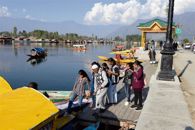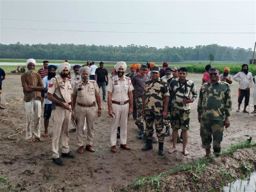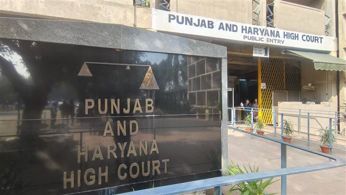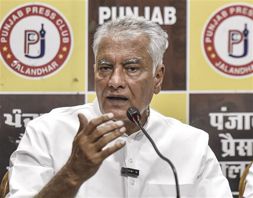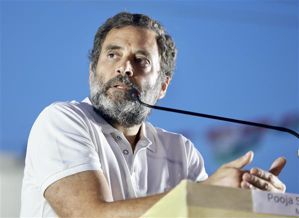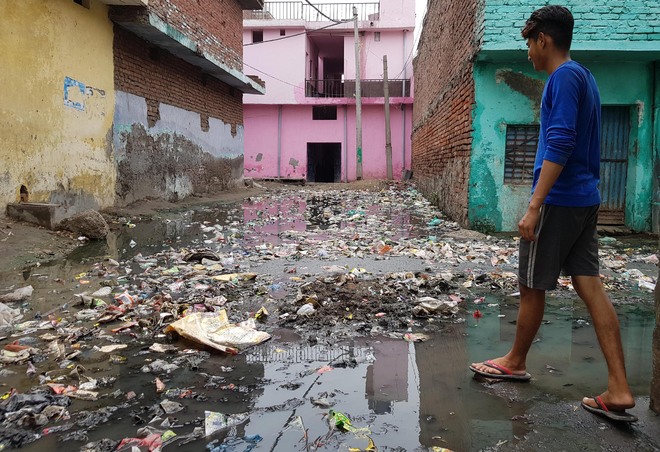
Low-cost chemicals may be used to treat water before supplying it to residents. file photo
How to ensure potable water for city residents?
The water tanks and pipes in the city should be cleaned regularly. Throwing of plastic bags and factory wastes into water bodies must be checked. The Municipal Corporation should appoint able officers to check the quality of water being supplied to houses.
Miyush Trehan, Ludhiana
Start campaign
Residents should boil water before drinking and a few drops of chlorine may be added to disinfect the water. Authorities must start a campaign for safe drinking water.
Kamaldeep Kaur
Mend drainage system
Firstly, the sanitation and drainage system should be mended so that all waste water goes into sewers. The Municipal Corporations may put chlorine tablets or other chemicals in tube wells and residents may install purifiers at home.
Vidhushi Jain, Sunder Nagar, Ludhiana
Use chlorine
People should say no to throwing of garbage/ waste in canals and use of chlorine tablets should be encouraged at the community level.
Harleen Kaur
Rainwater harvesting
Safe water supply is the backbone of a healthy economy. It is estimated that waterborne diseases have an economic burden of approximately USD 600 million a year in India. To decrease the spread of such diseases, clean water supply is a must. Sanitation facilities must be improved. Rainwater harvesting systems should be implemented at a large scale to store the safe drinking water. Promote low-cost solutions such as chlorine tablets or plastic bottles that can be exposed to sunlight to improve water quality.
Amarpreet Kaur
Check sources of water pollution
Pure and clean water is one of the human rights. We may prevent contaminated water by checking all sources of water pollution. We should not dispose of household chemicals and cleaning agents down the sink or toilets. We should use minimum detergents. One must keep out oils, fats or grease from the sink. One must dispose of trash properly as some of the non-degradable products such as diapers and sanitary towels may end up destroying the process of sewage treatment, especially when they are flushed down the toilet. We should desist from disposing rubbish or any other waste products into lakes, rivers, streams, or oceans. We must plant more trees and should use reusable goods. Water supply pipes must be cleaned every month.
Farzana Khan
Check water samples regularly
The basic duty of civic bodies is to provide residents with amenities such as water, electricity and sewerage. The MC should make sure that there are no leakages in the supply of water. Water samples should be regularly checked. Permission should not be granted to telephone companies and other facility providers to dig up roads repeatedly as in some cases, water supply may be disconnected or some leakages may occur when they do so. The MC should educate people about safe drinking water to avoid diseases. We all should join hands to educate people about effects of consuming contaminated water.
Dr Mohd Saleem Farooqui
Create awareness
The responsibility for supply of clean potable water to city residents lies primarily on the Municipal Corporation. As the consumption of poor-quality water results in many diseases, it should be checked. Water in the city is supplied mainly through over-head water tanks maintained by the MC. The water must be pre-treated with chlorine tablets to ensure that it is fit for drinking. The MC, under all conditions, must attend immediately to residents’ concerns and undertake remedial measures to supply clean potable water. Punjab Agriculture University has prepared an in-expensive kit for testing the quality of potable water for human beings. The Corporation must acquire and distribute these kits for keeping a watch on the quality of water supplied for drinking purposes. The MC must also undertake education programmes through city women and youth on the quality and suitability of potable water for keeping good health.
Gautam Dev
Ensure judicious use
Safe drinking water is important for ensuring public health — whether it is used for drinking, domestic use, food production or recreational purposes. Improved water supply and sanitation and better management of water resources can boost countries’ economic growth and can contribute greatly to poverty reduction. Improving sanitation facilities by providing toilets and latrines that flush into a sewer or safe enclosure by promoting good hygiene habits through education, implementing rainwater harvesting systems to collect and store rainwater for drinking or artificial groundwater recharge can ensure clean and quaility water for local residents. It is our duty not to waste and contaminate water, if we do the same, we can face problems in future.
Akshar Kumar Singla
Develop infrastructure
Implement rainwater harvesting systems to accumulate rainwater for drinking. Unclean water is a result of poor infrastructure and lack of sanitation. The MC should encourage good hygiene habits among residents. To ensure clean water, we also have to take steps towards equal distribution of wealth.
Kannan Jain
Clean water channels
The poor are always the worst sufferers when it comes to lack of clean drinking water supply. They have to drink impure and contaminated water supplied by the Municipal Corporation. This is the reason that masses are vulnerable to several waterborne diseases. The overhead tanks and water channels which supply drinking water to houses should be regularly cleaned. Water in the reservoirs should be chemically treated and made free of various microorganisms (using ultraviolet lamps) periodically.
Sunil Chopra, Lakkar bazaar
Plug leakages
Providing clean potable water to the city residents is one of the primary duties of the Municipal Corporation. Sadly, several areas, especially the slum areas, lack of potable water is a major problem. Even if clean water is available, it gets contaminated due to leakage in sewage lines. Also, the water supply lines are often leaking at many spots, resulting in contamination. To ensure clean supply of drinking water, leakage of sewage lines and other water supply pipelines should be plugged. Installing/repairing of the water pumps is the need of the hour. The money collected as water charges or for installing new water connections should be utilised for improving the supply of water only. At any cost, funds must not be diverted. Checking the wastage of water should be the sole responsibility of residents of the city. All these measures will surely help in the supply of potable water in the city.
Bir Devinder Singh
Community effort needed
Industrialisation has caused water pollution. The demand of water is more than its supply. We need to maintain a balance and ensure assessibility of potable water to all. Though we have water facilities such as boreholes and wells, there is a need for proper monitoring of these, especially in summers. We need to practise rainwater harvesting of all kinds such as tunkas, surface run off and recharge pits. The government needs to be more strict in actions and plans. Lastly, we, as sincere citizens, also need to use water wisely and ensure security of water for our future generations.
Simarjot Kaur
Store water in clean containers
As water is a basic need for human life, access to clean water is a basic human right. Adequate, clean and safe drinking water supply has to be made available for various users. Moreover, everyone needs access to safe water for drinking, cooking and personal hygiene and sanitation facilities. Some of the reasons behind lack of clean water are related to human development — infrastructure, population growth, migration, economic development and overuse — and some pertain to natural issues such as climate change, flood and drought. Education is the most powerful weapon which you can use to change the world. Adequate water should be used for hygiene purposes such as bathing, household cleanliness, and clothes washing. Improved water sources should be used hygienically and be well maintained. There should be no risk of contamination of water sources from nearby latrines, drainage, cattle or agricultural chemicals. Simple purification procedures such as chlorination should be carried out on the water source if necessary. If necessary, water should be filtered to remove any solid material and guinea worm. Drinking water should be stored in clean vessels. Education is the soul of a developed society.
Savleen Kaur Pahuja, Model town, Ludhiana
Unchecked development a cause of concern
Many of the world cities are growing exponentially and unchecked development is spawning slum neighborhoods that lack water infrastructure. Throwing waste products in water bodies is a serious health hazard and increases the spread of waterborne and sanitation-related diseases such as diarrhea and parasitic infections. Many urban water systems present their own problems, but they also offer an opportunity for ensuring clean and treated water to millions of people. More efforts are needed for developing community toilet facilities and setting up waste treatment infrastructure, as well as making provisions for clean water supply in neighborhoods.
Amanpreet Kaur
Generating wealth for all
Lack of access to safe drinking water goes hand in hand with poverty. To ensure consumption of clean water, we must work to generate wealth for all. Technologies employ reusable and element-specific sorbents to remove arsenic, fluoride and other toxins from groundwater, but we cannot achieve a lasting solution unless responsible persons are involved in any such project. Thus, we must work with community leaders to promote economic growth by providing jobs. The Municipal Corporation should keep examining the quality of water at various spots. People getting contaminated water should reach out to the civic body as soon as possible. Water should be treated well.
Blessnoor Kaur
OPEN HOUSE COMMENT
Clean drinking water defines civilisation
Minna Zutshi
The United Nations declared access to safe drinking water as a fundamental human right. One of the main goals of the Millinium Development Goals is access to water. According to the UN Sustainable Development Goals, "Water sustains life, but clean drinking water defines civilisation."
Safe drinking water is defined as the water that "does not represent any significant risk to health over a lifetime of consumption". The safe drinking water must be pure, wholesome, healthful and potable.
According to the monitoring organisations under the supervision of the Joint Monitoring Programme (JMP), "safe drinking water" is defined as water from an "improved water source," which includes household connections, public standpipes, boreholes, protected dug wells, protected springs and rainwater collections. According to the same organisation, "access to safe drinking water" is defined as the availability of at least 20 litre per person per day from an "improved" source within 1 km of the user's dwelling.
Safe drinking (potable) water is "the water that can be delivered to the user and is safe for drinking, food preparation, personal hygiene and washing. The water must meet the required (chemical, biological and physical) quality standards at the point of supply to the users".
OPEN HOUSE QUESTION
How can the adulteration of sweets and other food items be checked during the festive season? [email protected]
Join Whatsapp Channel of The Tribune for latest updates.










